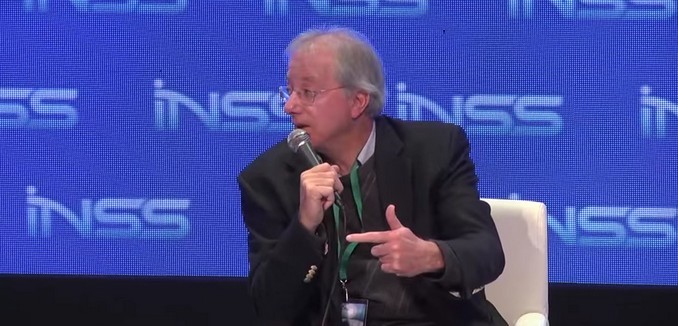Any nuclear deal with Iran must be clear about “the consequences for a wide array of different classes of violations,” former Ambassador Dennis Ross, who served during the first term of the Obama administration, told The Times of Israel in an article published today.
He gave some examples: Obviously, if Iran was caught “dashing” to the bomb, “that would be a justification for the use of force.”
Were the Iranians to be caught “repiping” centrifuges to increase their output in breach of an agreement, “that strikes me as being in the more egregious category. If they don’t correct that immediately, that is not just a justification for sanctions. It could actually be a justification for the use of force by a set time if they don’t make the corrections.”
The negotiators need to anticipate where there could be different interpretations of the deal, and decide “what are we going to do if we find [the Iranians] playing that game: What happens, for example, if they decide that they’re not going to allow you access when you want access? What happens if they decide that you’re exceeding the number of times that you can look at something? I suggest that we should identify the range of the violations, the character of those violations, and the consequences for each of those, in advance. And my preference would be to actually have the Congress agree on these consequences.”
Having Congress involved, according to Ross, would give any deal more credibility and would send a signal to Iran that the U.S. is unified, which could have a deterrent effect on Iran. A failure to spell out all possible consequences would make a deal unacceptable, said Ross, who acknowledged that he was aware that some American negotiators liked his ideas but wasn’t sure if they would be implemented.
Ross explained the need for spelling out the consequences for potential violation: “If you’re really going to put a premium on one-year breakout time, by definition what you require for verification and transparency becomes even more demanding. Because if it doesn’t meet a certain threshold of credibility, you won’t have your one year.”
Last year Iran was caught feeding uranium gas into an advanced, previously untested centrifuge, in violation of the November 2013 Joint Plan of Action, but it suffered no consequences. The JPOA was subsequently renewed, giving Iran billions more in sanctions relief despite that violation and its failure to adequately explain its past nuclear work to the International Atomic Energy Agency.
Ross has questioned aspects of the administration’s negotiating strategy, including the unreciprocated flexibility shown by the West towards Iran, as well as its failure to address the concerns of its Middle Eastern allies. Ross also called on the administration to address the concerns brought up by Israeli Prime Minister Benjamin Netanyahu in his speech before a joint session of Congress earlier this month.
[Photo: INSS ISRAEL / YouTube ]




